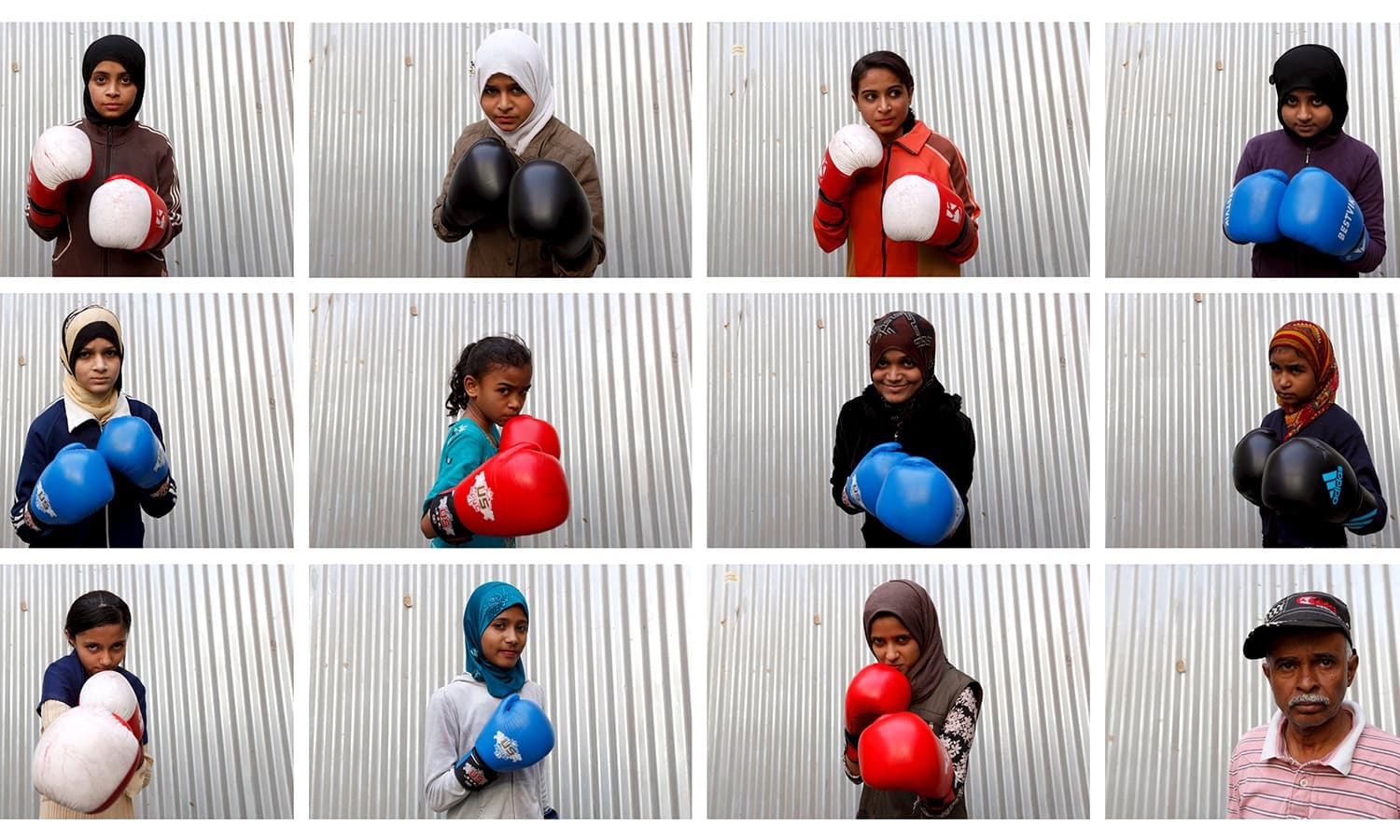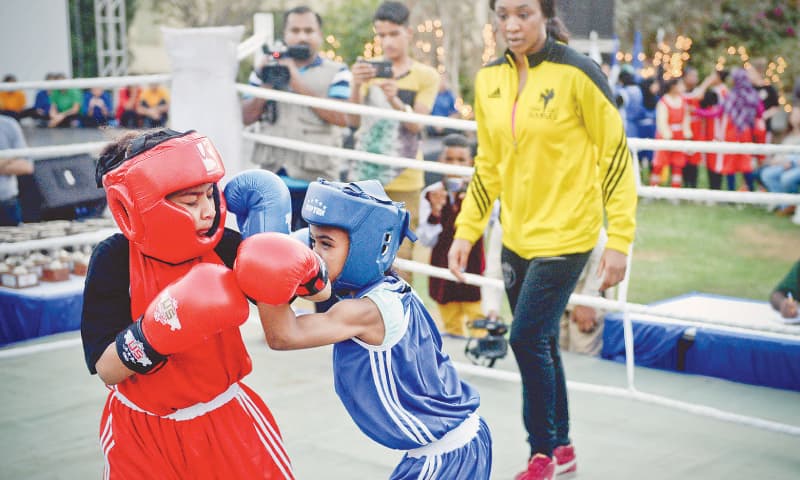Feminists are often charged with being too serious, of not having a sense of humour, and of not knowing how to have fun.
While this certainly does not apply to my personal life, I have to admit my work as a feminist sociologist has generally focused on exposing the darker side of patriarchy.
Topics such as domestic violence, restrictions on mobility and gender-based discrimination often concern feminist researchers, particularly those who are studying the Third World and Muslim women.
We are trained to uncover experiences of oppression and violence at the expense of experiences of other aspects of women’s lives such as joy or pleasure.
This reinforces the notion that the lives of these women are bleak, and it is our job as researchers to shed light on their problems.
Throwback: Why the Aurat March is a revolutionary feat for Pakistan
Such an approach is flawed on multiple fronts, not least because it flattens and simplifies women’s lives, robs them of their agency and only tells a small part of a much richer and complex story.
It also reinforces the notion that feminism is fundamentally opposed to fun.
In order to try to rectify this tendency in my own work, I have turned my attention over the last few months to the question of whether having fun can be seen as a feminist act as part of my wider research into the dynamics of social life in Lyari.
Reproducing dominant narrative

Apart from wanting to move away from the focus on oppression within feminist research, I have also been conscious of the fact that most research conducted on Karachi has thus far focused on the violent nature of the city to the neglect of most other aspects of urban life.
It is really no wonder outsiders often find it difficult to understand Karachi-wallahs’ attachment to their city. This is particularly pronounced in certain parts of the city.
For example, the inner-city area of Lyari, where I have been conducting research for the past six years, has been painted by the media as a conflict-ridden ‘no-go area’— a characterisation that I try to question in my work, but inadvertently reproduce by focusing mainly on experiences of violence.
A focus on fun complicates our idea of what it means to engage in feminist research and to study feminist resistance.
Rethinking resistance

In general, resistance has been thought about as taking place in the form of organised political action, through protests and social movements.
However, for the past two decades, anthropologists have turned their attention to the ‘everyday forms of resistance’ that take place amongst the marginalised and oppressed.
Feminist researchers have also been inspired by this approach and have pointed to the multiple ways that women challenge patriarchal boundaries in the context of their everyday lives.
This has opened up new vistas in terms of how we think about oppression and resistance.
Asef Bayat, for example, has studied the quiet revolution that has taken place in Iran over the past two decades where women have pushed back against patriarchal structures through what he calls a “collective nonmovement” of dispersed, everyday acts of defiance to patriarchal structures.
Now read: A road trip with my mother where women 'cannot go alone'
While little formal research has been conducted on the relationship between feminism and fun, there is a growing awareness of the importance of the right to pleasure and enjoyment as an intrinsic part of a wider set of feminist demands.
In their book Why Loiter, Shilpa Phadke, Sameera Khan and Shilpa Ranade talk about the significance of loitering — hanging out with no purpose, just for the fun of it — as a political act used by women to claim that they too have a right to occupy public space.
They highlight the importance of women doing this in a non-productive and non-consumptive manner, something that we still rarely witness in South Asia.
In general, women are seen rushing to their places of work, going to the market or taking their children to school. Women who are in public with no acceptable purpose are often viewed as threats to the moral order.
Small efforts have been made by groups such as Girls at Dhabas and Girls on Bikes to challenge this notion, but these efforts are still only emerging.
Fieldnotes on fun

It’s not that fun had been absent from my research. It had always been there, lingering in the background. I had just never paid it much attention.
For example, while studying the relationship between paid work and domestic violence, I came across many women who talked about how, despite often being engaged in low-wage forms of labour, they actually enjoyed going to work because it gave them a break from the house and the opportunity to interact with people outside their immediate families.
When I studied the media, there were several women who talked about enjoying reading the local newspaper, despite the constant stream of blood and gore, as a form of entertainment and fodder for discussion with friends and neighbours.
When analysing people’s involvement in protests, many spoke about participating mostly for enjoyment and fun.
Also read: Pregnant and fired: a Pakistani woman’s workplace dilemma
Enjoyment and pleasure were always there, but the questions I was asking left no room for these aspects of social life to emerge.
And when I actively set out to look for fun in Lyari, I found several examples of women and girls taking every possible opportunity to enjoy themselves despite facing multiple restrictions.
There were the ‘acceptable’ means of having fun such as smoking a hookah in the galli and catching up with friends, or hanging out on the rooftops during loadshedding to catch the breeze and the latest gossip.
There were those exceptional moments and times of the year when women and girls have more freedom, like during the last two weeks of Ramazan, when the otherwise male-dominated streets were lit up all night and filled with women meandering their ways to the open-air markets and stopping along the way for a snack and a chat with friends and neighbours.
There were also the sneaky ways of finding fun, where women and girls tried to negotiate their ways within and around social restrictions without openly challenging them.
For example, as is the case with many middle-class young women and girls, having a Facebook account is not seen as acceptable by most families in Lyari.
However, many young women I met secretly maintained accounts and used them to meet new friends and prospective romantic interests.
While they rarely put up their own image or name in their profiles, once contact was established with someone, it could open a range of new possibilities for excitement.
In limited ways, virtual space seemed to be providing new modes of expression and opportunities to connect for those who were able to gain access.
Apart from the acceptable and hidden modes of pleasure-seeking, which may push against boundaries but not necessarily challenge them and which are not entirely new, one increasingly sees young women openly challenging accepted gender norms.
Related: 'Cycle chalao, patriarchy dubao': Taking to Karachi streets without the company of men
While social activities were greatly restricted during the years of conflict in the area, the last few years have seen a gradual renewal of the vibrant social and cultural life that had previously characterised Lyari.
A new addition to this is the emergence of spaces catering to women and girls, particularly for sports.
There are at least two girls’ boxing clubs, and the Lyari Girls’ Café regularly holds cycling events for the young women and girls in the otherwise conservative area of Kalri.
Despite initially facing backlash from the local chapter of the Jamaat-i-Islami, the Girls’ Café has persisted in its efforts and almost a year since they began this initiative, most opposition has successfully been silenced.
While these began as organised events, several young women and girls enjoyed their experience of cycling so much that they now regularly go out in smaller groups just to feel the wind on their faces and the sense of freedom they experience while outside.
They also seem to relish coming up with new and creative comebacks to the men who pass comments along the way.
Taking fun seriously

While I began this research as a means of moving away from an overemphasis on violence, I realised that fun and violence are also not separate issues.
Like fun, violence is always present as part of everyday life, whether it is the memory of past violence or the imminent threat of future violence.
In an area like Lyari, which has experienced almost two decades of conflict, and in the lives of women who constantly face the threat of multiple forms of violence in their daily lives, you cannot forget that violence exists. However, focusing solely on violence only provides a partial picture.
Paying attention to other aspects of social life — including fun and enjoyment — helps us understand what keeps communities and individuals ‘together’ through difficult times.
Up next: 'Hans gayi aur phans gayi': On the mechanics of laughter and sexual harassment
However, while fun can act as a kind of social glue, I am not arguing that it is a conservative force.
The pursuit of fun and enjoyment is often an important means of challenging power structures, moral codes and bringing about a change in power structures.
For young women in Lyari — and indeed across Karachi and Pakistan — engaging in fun is often a means of pushing up against the boundaries that restrict their lives.
While protests and organised social movements remain important methods of affecting social change, the seemingly minor acts that women and girls engage in every day are also key to understanding how gender norms are gradually transformed at the micro-level.
While these women and girls may not consciously identify these activities as ‘feminist’ themselves, I argue that they should be viewed as part of a broad canvas of feminist resistance in that they often present a challenge to what are viewed as ‘acceptable’ forms of female behaviour.
In other words, it is high time we start taking fun seriously and stop seeing it as being opposed to the objectives of feminism.
Are you studying the lives of Pakistani women? Share your thoughts with us at blog@dawn.com















































